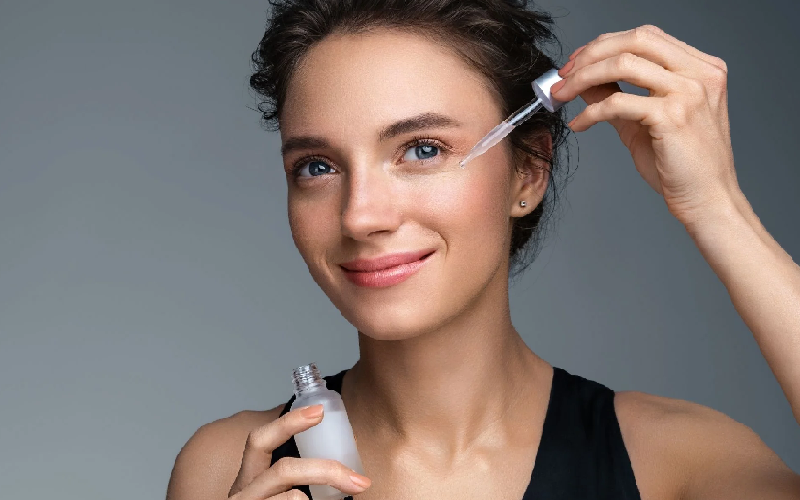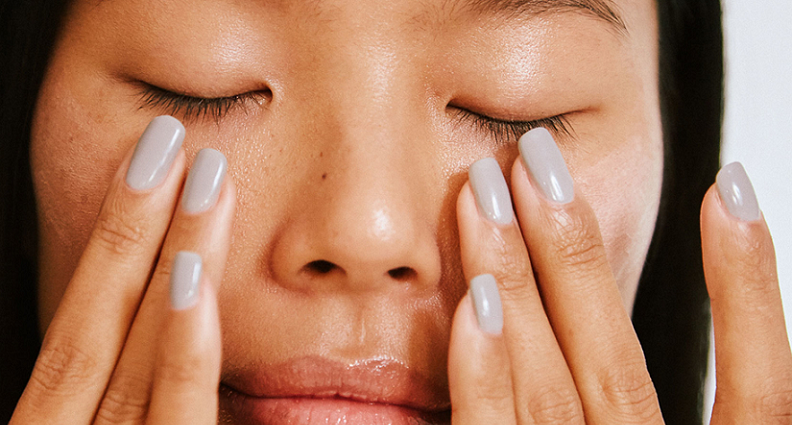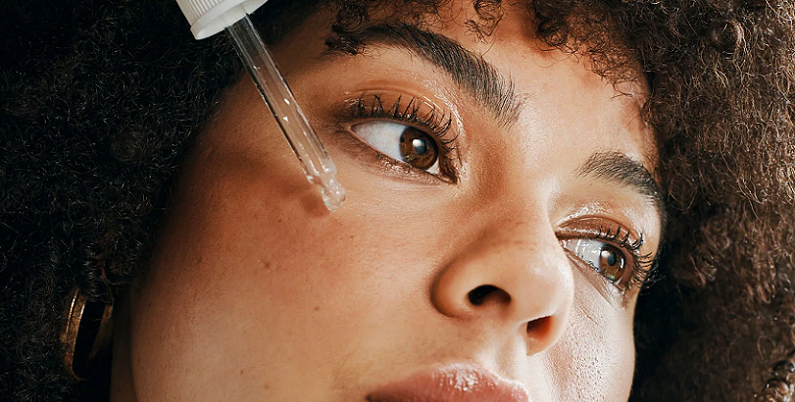
In the ever-evolving world of skincare, one term that has been capturing the spotlight is ‘peptides.’ This seemingly small component is making a big impact on skincare routines globally, promising remarkable benefits for skin health and appearance. Here we go deep into the world of peptides – the tiny yet mighty heroes in the realm of skincare. From their fundamental science to their transformative effects on the skin, we examine how these amino acid chains are revolutionizing skincare products. Whether you’re grappling with signs of aging, seeking to repair damaged skin, or simply aiming to maintain a healthy, radiant complexion, peptides might just be the answer you’ve been searching for.
Contents
Understanding Peptides
In the quest for radiant, youthful skin, peptides stand out as a key ingredient in modern skincare. But what exactly are peptides, and why have they become such a buzzword in the beauty industry?
Definition and Basic Science of Peptides
Peptides are short chains of amino acids, which are the building blocks of proteins. Think of them as mini-proteins. However, their shorter chain length allows them to penetrate the skin more easily compared to larger protein molecules. In the human body, peptides serve as signaling molecules, instructing cells to perform various functions, including skin repair and regeneration.
When applied topically through skincare products, peptides act as messengers, signaling the skin to boost its repair processes. This can lead to various benefits, from enhanced collagen production to improved skin texture and tone.
Types of Peptides Used in Skincare
Not all peptides are created equal. In skincare, different types of peptides have specific roles.
Signal Peptides
These peptides encourage the skin to produce more collagen and elastin, which are crucial for maintaining the skin’s firmness and elasticity.
Neurotransmitter Inhibitor Peptides
Often used in anti-aging products, these peptides work by limiting muscle contractions, thereby reducing the appearance of expression lines and wrinkles.
Carrier Peptides
They help stabilize and deliver trace elements necessary for wound healing and enzymatic processes, enhancing skin regeneration.
Enzyme Inhibitor Peptides
These work by slowing down the breakdown of collagen and elastin, protecting the skin structure. Understanding the specific function of each type of peptide can help in choosing the right products for your skincare goals.
How Peptides Work on the Skin
Peptides are like targeted messengers that tell your skin cells to perform specific functions. When applied topically, they penetrate the upper layer of the skin, sending signals to our cells to let them know how to function properly.
For instance, when signal peptides tell skin cells to produce more collagen, the result is often firmer, plumper skin. This targeted communication is what makes peptides so valuable in skincare – they can address specific skin concerns like aging, hydration, and skin barrier repair [1].

Skin Benefits of Peptides
Peptides have garnered a reputation for their transformative effects on the skin. Beyond their scientific intrigue, the real magic of peptides lies in the myriad of ways they can improve skin health and appearance.
Anti-Aging Effects
One of the most celebrated attributes of peptides in skincare is their anti-aging properties. They address some of the most common concerns associated with aging skin.
Reduction of Wrinkles and Fine Lines
Peptides stimulate collagen production, a key factor in maintaining skin’s elasticity and firmness. As collagen levels increase, the skin appears smoother and fine lines and wrinkles are visibly reduced. This effect is particularly beneficial for mature skin, where natural collagen production has slowed down.
Improvement in Skin Elasticity
Beyond reducing wrinkles, peptides also enhance the overall elasticity of the skin. This leads to a more youthful, resilient complexion. Firmer skin is less prone to sagging and can maintain a more defined and contoured appearance [2].
Skin Repair and Regeneration
The regenerative properties of peptides are pivotal in skin health, especially in healing and rejuvenation.
Role in Collagen Production
Collagen is not just important for anti-aging; it’s also crucial for skin healing. By signaling the skin to produce more collagen, peptides facilitate faster healing of scars and blemishes, leading to a clearer and more even complexion.
Accelerating Healing Processes
Peptides can speed up the skin’s natural healing processes. This is particularly useful in recovering from skin damage due to environmental factors, acne, or other skin conditions. Faster cell turnover and improved skin barrier function mean healthier skin overall [3].
Enhancing Skin Barrier
A strong skin barrier is essential for protecting against environmental aggressors and maintaining hydration. Peptides play a significant role in this area.
Protection Against Environmental Damage
By reinforcing the skin’s natural barrier, peptides help shield the skin from harmful pollutants, UV rays, and other environmental stressors. This protection is crucial for preventing premature aging and maintaining healthy skin.
Maintaining Skin Hydration
Peptides can help lock in moisture, ensuring that the skin remains hydrated and plump. Well-hydrated skin not only looks healthier but is also more resilient against irritation and dryness.

Incorporating Peptides into Your Skincare Routine
Understanding the benefits of peptides is just the first step; the next crucial phase is incorporating them effectively into your skincare routine. With a plethora of peptide-infused products available, it’s important to know how to choose and use them for maximum benefit.
Identifying Products with Effective Peptide Formulations
The efficacy of a peptide product depends on the formulation. When selecting peptide-infused products, consider the following.
Peptide Type
Identify which type of peptide is used and what skin concern it targets. For example, if you’re looking to reduce wrinkles, look for products with signal peptides [4].
Concentration
A higher concentration of peptides can mean a more potent product, but it’s not always necessary. Sometimes, a lower concentration works effectively within a well-formulated product.
Complementary Ingredients
Look for products that combine peptides with other beneficial ingredients like antioxidants, hyaluronic acid, or vitamins. These combinations can enhance the overall effectiveness of the product.
Best Practices for Using Peptide-Infused Skincare
To maximize the benefits of peptides in your skincare, follow these best practices.
Layering
Apply peptide products after cleansing and toning, but before heavier creams or oils. This ensures better absorption of the peptides into the skin [5].
Consistency
Regular use is key. Peptides work over time, so consistent application is crucial to see significant results.
Sun Protection
Since peptides aid in skin repair, protecting your skin from further damage is essential. Always use a broad-spectrum sunscreen during the day.
Understanding Concentration and Potency
It’s important to understand that more isn’t always better when it comes to peptide concentration. High potency can be effective, but it’s not always necessary for achieving desirable results. A well-balanced formulation, even with a moderate peptide concentration, can offer significant skin benefits. Additionally, consider your skin type and sensitivity when choosing the concentration; what works for one person may not work for another.
References
[1] What Are Peptides and What Do They Do for Skin?
[2] What Are Peptides? What To Know About This Anti-Aging Ingredient
[3] Anti-Wrinkle Benefits of Peptides Complex Stimulating Skin Basement Membrane Proteins Expression
[4] How Peptides Ingredient Help Build Collagen for Firmer Skin
[5] Collagen peptides and the related synthetic peptides: A review on improving skin health
